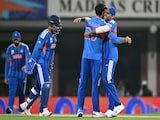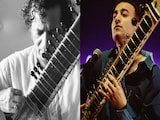Mahatma Gandhi was nominated several times but was never awarded the Nobel Peace Prize. On the eve of his 154th birth anniversary, the Nobel Prize panel explained why Mohandas Gandhi, who became the symbol of non-violence in the 20th century, was never awarded the prize.
He was nominated in 1937, 1938, 1939, 1947 and, finally, a few days before he was assassinated in January 1948. Failure to give the prize to Mahatma Gandhi before his death in 1948 is also seen by many as a mistake.
In 1937, a member of the Norwegian parliament Ole Colbjornsen nominated him and he was selected as one of the thirteen candidates.
Some of his critics on the panel maintained that Gandhi was not consistently pacifist and that some of his non-violent campaigns against the British would degenerate into violence and terror. They cited the example of the first Non-Cooperation Movement in 1920-21 when a crowd killed many policemen and set fire to a police station in Chauri Chaura in the Gorakhpur district of the United Provinces in British India.
Some, according to the panel, were of the view that his ideals were primarily Indian and not universal. The Nobel committee's adviser Jacob S Worm-Muller said, "One might say that it is significant that his well-known struggle in South Africa was on behalf of the Indians only, and not of the blacks whose living conditions were even worse."
Lord Cecil of Chelwood was the laureate of the 1937 award. Mahatma Gandhi was renominated by Colbjornsen again in 1938 and in 1939 but ten years were to pass before Gandhi made the short list again.
In 1947, Mohandas Gandhi was one of the six names on the committee's short list.
However, three of the five members were very reluctant to award the prize to Gandhi amid the India-Pakistan struggle. The 1947 award went to the Quakers.
Mahatma Gandhi was assassinated on January 30 1948, two days before the closing date for that year's Nobel Peace Prize nominations. Six letters of nomination were sent to the committee - some nominators were former laureates.
But nobody had ever been awarded the Nobel Peace Prize posthumously. According to the statutes of the Nobel Foundation in force at that time, the prizes, under certain circumstances, be awarded posthumously.
The then Director of the Norwegian Nobel Institute, August Schou, asked the Swedish prize-awarding institutions for their opinion. The answers were negative as they thought the posthumous awards should not take place unless the laureate died after the committee's decision had been made.
That year there was no award as the Norwegian Nobel Committee felt "there was no suitable living candidate".
What many thought should have been Mahatma Gandhi's place on the list of Laureates was silently but respectfully left open.
Moreover, up to 1960, the Nobel Peace Prize was awarded almost exclusively to Europeans and Americans.
The panel explained that Gandhi was very different from earlier laureates. "He was no real politician or proponent of international law, not primarily a humanitarian relief worker and not an organiser of international peace congresses. He would have belonged to a new breed of Laureates," it said.















